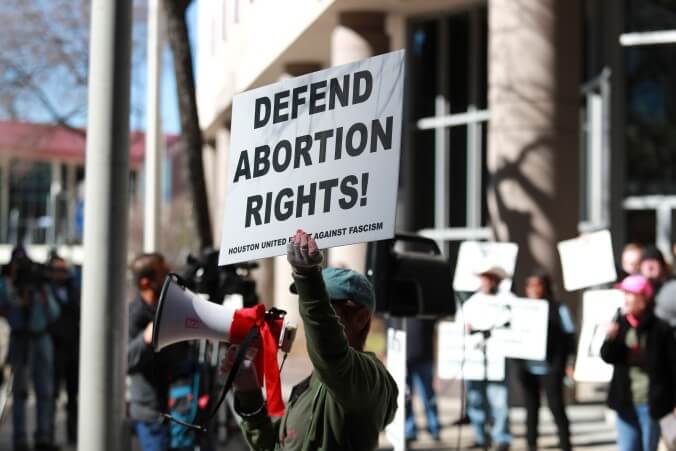Beyond Florida, It’s Been a Big Week for Abortion Rights Ballot Measures
The Montana Supreme Court issued a ruling; Arizona organizers say they've collected enough signatures; and Missouri organizers got a surprise celebrity assist.
AbortionPolitics
On Monday, the Florida state Supreme Court issued a wildly bittersweet ruling, allowing the state’s six-week abortion ban to take effect—effectively decimating abortion access across the South—but also allowing Floridians to vote on a ballot measure to enshrine a right to abortion this November. And as you’ll recall, a handful of other states have been trying to get their own abortion rights measures on the ballot this year, and there’s been movement in these states this week as well.
Since the Supreme Court overturned Roe v. Wade, multiple states have voted directly on abortion, and from Kansas to Ohio, these efforts have been universally successful. Consequently, anti-abortion government officials have been doing everything they can to stop these measures from moving forward. As states including Montana, Arizona, Missouri, and others race to get their proposed abortion measures on the ballot, they’ve been up against barrier after barrier.
Montana
BREAKING: Montana Supreme Court holds 4-3 that all 4 bills restricting voting from the 2021 Session are unconstitutional and permanently enjoins them. Chief Justice McGrath writes the opinion, joined by McKinnon, Shea, and Gustafson #mtpol #Mtnews #mtsen pic.twitter.com/5rauj7SAS2
— MontanaMuckraker (@MontanaMuckrake) March 27, 2024
This week, Montana organizers are one step closer to being able to collect signatures to put their abortion rights measure on the ballot this November. In Montana, abortion is currently legal until the fetus is viable (which, itself, is a highly arbitrary marker that varies per pregnancy), but organizers are trying to formally enshrine a right to abortion in the state Constitution.
On Monday, the state Supreme Court rejected a highly politicized, inaccurate summary of the measure that would appear on ballots, written by the state’s anti-abortion, Republican attorney general, Austin Knudsen. In Knudsen’s summary, he claimed the measure “amends the Montana Constitution to allow post-viability abortions up to birth” (an inaccurate, increasingly popular fearmongering framing from anti-abortion politicians fighting ballot measures); “leaves ‘fetal viability’ and ‘extraordinary medical measures’ to the subjective judgment of an abortion provider rather than objective legal or medical standards;” and “may increase the number of taxpayer-funded abortions.”
The state Supreme Court wrote its own summary of the proposed measure as it would appear on ballots, stating that the measure would “amend the Montana Constitution to expressly provide a right to make and carry out decisions about one’s own pregnancy, including the right to abortion,” and “prohibit the government from denying or burdening the right to abortion before fetal viability.”
“It would also prohibit the government from denying or burdening access to an abortion when a treating healthcare professional determines it is medically indicated to protect the pregnant patient’s life or health,” the summary states, and “[prevent] the government from penalizing patients, healthcare providers, or anyone who assists someone in exercising their right to make and carry out voluntary decisions about their pregnancy.”
But now, there’s disagreement between Montana abortion rights organizers on whether they can move forward with collecting signatures to get on the ballot—or whether the proposed measure, with the state Supreme Court’s summary, still requires approval from the legislature. The ruling marks a step forward, but complications remain as organizers race to get enough signatures—and potential approval from the legislature—to qualify by June 1.
-

-

-

-

-

-

-

-

-

-

-

-

-

-

-

-

-

-

-

-

-

-

-

-

-

-

-

-

-

-

-

-

-

-

-

-

-

-

-

-









































